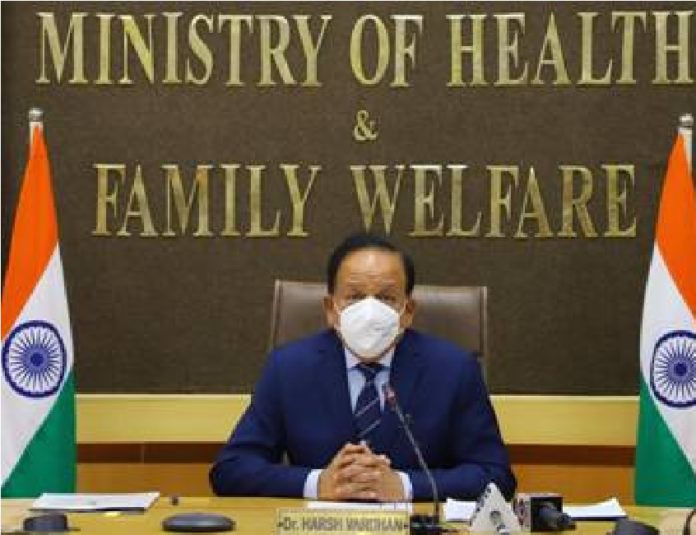New Delhi: India has pressed the need for identifying challenges and gaps, besides sharing of best practices among countries, to achieve the target of zero transmission of HIV and end AIDS by the targeted year of 2030.
Addressing the 75th session of the United Nations General Assembly (UNGA), Health Minister Harsh Vardhan talked about India’s National AIDS Control Programme and said it has been Revised, Revived and Revamped to focus on hard-to-reach and at-risk populations.
He said India aspires to scale up HIV care to reach 100% of people living with this dreaded disease.
“We are fully cognisant of the fact that with only 115 months to meet the target, we need to achieve zero new transmission of HIV if we are to deliver on the promise of ending AIDS in the next 10 years,” the Health Minister told the world body.
“We need to foresee and identify our challenges and gaps, customise our program, share knowledge, emulate best practices and stride towards reaching the Sustainable Development Goal of ending the AIDS epidemic, which is a grave public health threat, by 2030,” he said.
Speaking on the resolution 75/260, which concerns the Implementation of the Declaration of Commitment on HIV/AIDS and the political declarations on HIV/AIDS, Vardhan said India is providing free anti-retroviral treatment to close to 1.4 million people.
Indian drugs are also reaching millions of People living with HIV in Africa, he added.
India has ably demonstrated that strong political leadership is most critical to address inequalities and gaps in epidemic response, the Health Minister said.
Referring to the COVID-19 pandemic, he said India took swift and timely action by involving communities, civil society, and development partners to mitigate the impact of the pandemic on HIV services.
“In India, the HIV & AIDS Prevention and Control Act, 2017, provides a legal and enabling framework to safeguard the human rights of infected and affected populations,” he said.
India’s unique HIV prevention model is centred around the concept of ‘Social Contracting through which the ‘Targeted Interventions Program’ is implemented with support from civil society, the Health Minister said.
The program is aimed at behaviour change, communication, outreach, service delivery, counselling & testing and ensuring linkages to HIV care, he said.
“We are gradually transitioning the people living with HIV to Dolutegravir, a safer and efficacious antiretroviral medication regimen,” Vardhan said.
“Viral Load Testing facilities have been scaled up, and HIV counselling, testing and community-based screening for early diagnosis have been ramped up to achieve the target of Elimination of Mother to Child Transmission of HIV,” he added.
“In line with the motto of the Government of India, ‘Together, for everyone’s growth, with everyone’s trust’, the National AIDS Control Program has signed MoUs with public and private sector industries to mobilise their support for HIV prevention and treatment,” he said.








